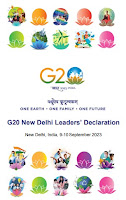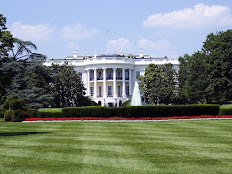G20 Special Part II: How the world order is being reshaped on its sidelines.

The 'official' outcomes of the G20 summit in Delhi were many. Statements were made, documents were signed, dinners were held, and decisions were made. The G20 became more representative, politically and socially inclusive, and covered a wider range of issues than ever before. This blog is the second part of a two-part blog series on the G20 summit in Delhi. The first part, where the G20 summit's official outcomes, the decisions made under its framework, and the Delhi Declaration have been discussed in detail, can be found here - G20 Special Part I: The Delhi Declaration and its outcomes. But the official summit served as a facade for the actual big meetings, big decisions, and big agreements made on its sidelines, that aim to reshape the world order. The decisions taken on its sidelines may change the way that the East trades with the West, the power dynamics between the East and the West, cementing India's global stature as an emerging superpower capable of leading po...

.JPG)
